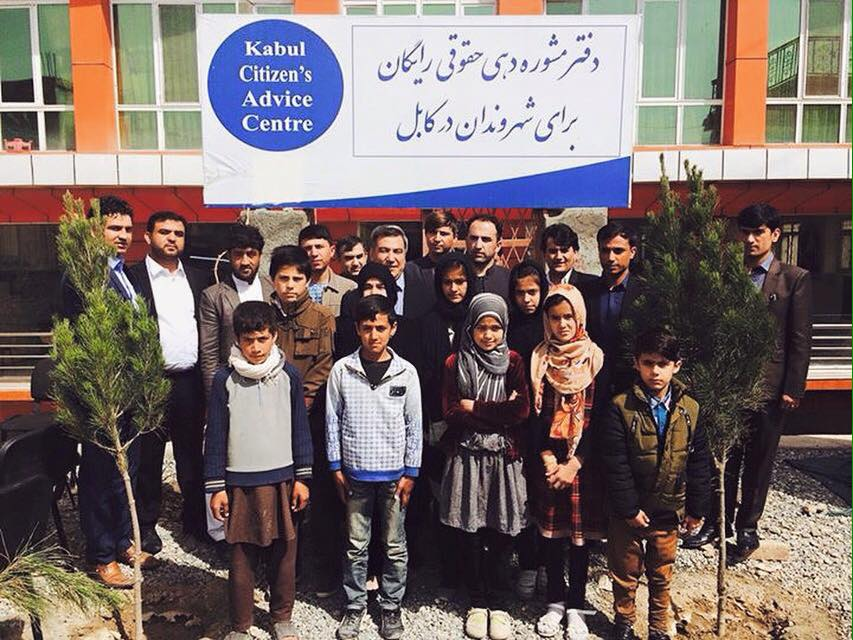Escaping the Taliban
How a refugee fled Afghanistan crammed in a refrigerated container and set up a life-saving charity

Crammed into a refrigerated container in the back of a lorry, Dr Nooralhaq Nasimi, his wife, three children- aged eight, five and four months - fled the threat of the Taliban in 1999, making a treacherous journey across Europe from Afghanistan, eventually arriving in the UK nine months later.
Fearing for his family’s lives, desperate for someone to hear, Dr Nasimi banged with all "my strength from inside the lorry door" when it finally stopped. Someone did hear his pleas and unlocked the door. The UK Border Agency and emergency services then, arrived taking the family to the local hospital for medical treatment and then to the immigration centre in Dover.
Born in Ghorband, a district in the north of Kabul, Afghanistan, Dr Nasimi grew up witnessing the invasion by the USSR and the rise of the Taliban’s religious fundamentalism curtailing freedoms making life dangerous for him and his family.
Aged 21 Dr Nasimi served as a soldier with the Afghanistan Army in Wardak Province, distributing food, water, newspapers and running workshops about equality for soldiers. Four years later in Ukraine, he met his wife Mahboba Nasimi, when the couple were studying at Odesa University for their undergraduate degree. Both his older daughters were born in Ukraine where he also obtained his PhD in law.
Later the family returned to Afghanistan in 1998. But he and Mahboba, who had studied for a masters degree were seen as "traitors" by the Taliban for their liberal views. One day he found out from a confidential source that he would be killed.
Dr Nasimi said: "At the time, we knew the best option for us was to try to get to the UK – a place we heard could give us the sanctuary and freedom we craved. So we sold all of our belongings and packed only essential items to make a journey across Europe and bid farewell to the life we left behind."
Video credit: Rabina Khan - Dr Nasimi (MBE), said he didn't know it was a refrigerated container
Video credit: Rabina Khan - Dr Nasimi (MBE), said he didn't know it was a refrigerated container
Boarding a flight from Kabul, Afghanistan to Ukraine, Dr Nasimi and his family travelled by foot, on a boat, in cars and lorries through Ukraine, Hungary, Slovakia, Austria and Germany - they slept in motels, petrol stations, in parks before reaching Belgium. "In Ukraine my son was born," said Dr Nasimi, "so travelling with a small baby made the journey even more dangerous. We had to protect him from the cold, seek medical care and try to keep up with immunisations."
In Brussels, Dr Nasimi and his family stayed in a refugee camp, waited for instructions from smugglers on how to get to the UK, until one night they were moved into the back of a refrigerated container in a lorry with other families.
When the family finally arrived in Dover, the Border Agency took the family firstly to the hospital, then the immigration centre and stayed overnight in a hotel. The next day the family travelled to the Refugee Council in Brixton and were eventually settled in Lewisham, South London.
The family began to settle down but things were tough to begin with. Everything was new, they couldn't speak English and the trauma of their journey had significant emotional and psychological implications. With support, Dr Nasimi's children started their education at a local school and began to thrive making new friends and learning "how to play again without fear." Within a year of arriving in the UK, he welcomed his youngest child and third daughter into their family.
Canva film created by Rabina Khan - Dr Nasimi describes the experience in the refrigerated container
Canva film created by Rabina Khan - Dr Nasimi describes the experience in the refrigerated container
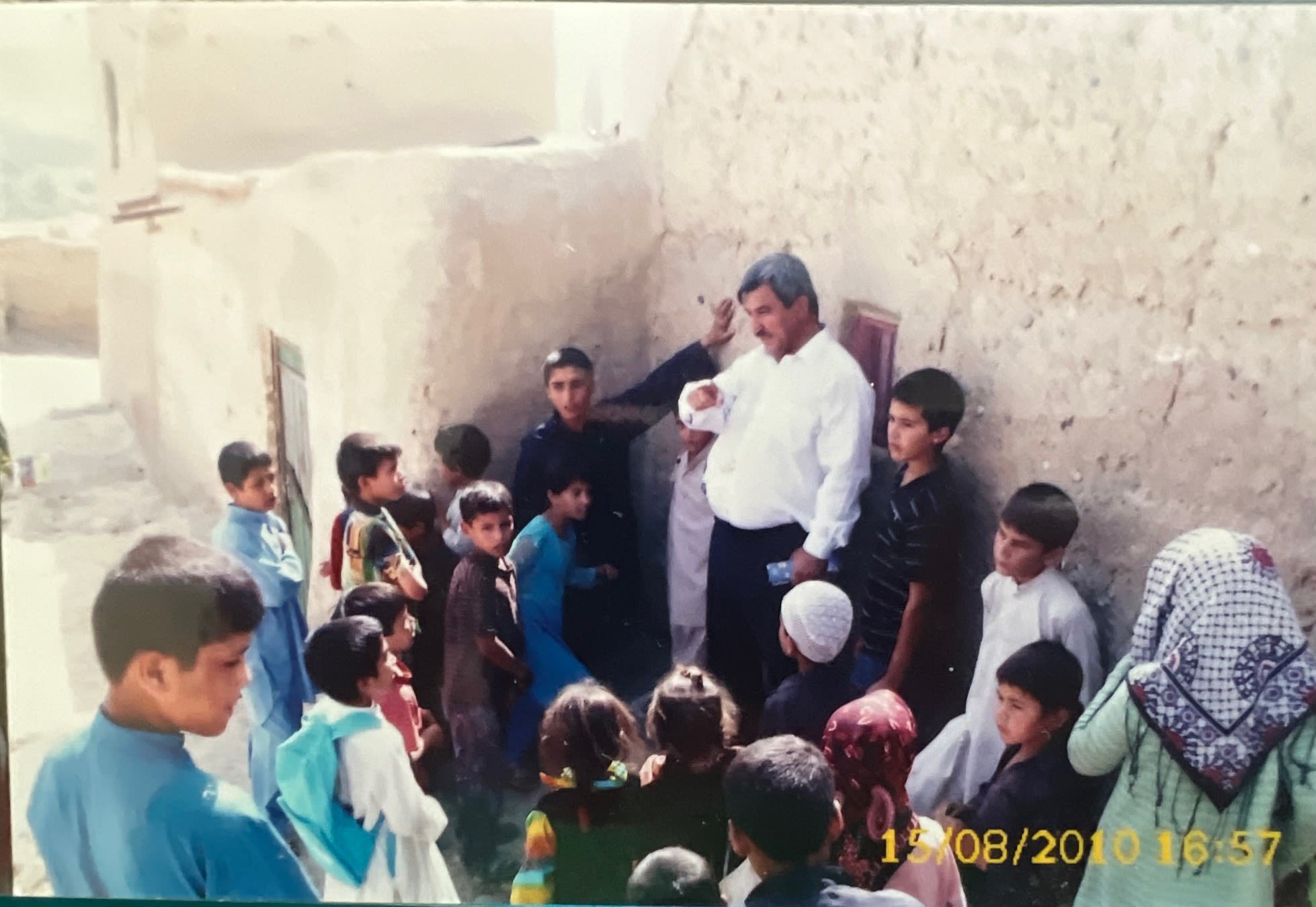
Dr Nasimi's journey through Europe
Video credit: Rabina Khan - Dr Nasimi (MBE), explains the journey through Europe
Video credit: Rabina Khan - Dr Nasimi (MBE), explains the journey through Europe
Dr Nasimi lived for a year in Ukraine in 1999 where his son was born. The family were cramped into small rooms along with other refugees, they ate very little and were unable to access sanitation. Later in the same year the family resumed their journey to the United Kingdom.
He recalls one of the most terrifying moments was crossing part of the border between Hungary and Slovakia. The family had to travel on a boat, designed to only carry 10 to 15 people but with 40 people "squashed" into it at night.
The boat journey is forever etched in Dr Nasimi's mind; remembering the water lapping against the boat getting stronger as the family held on to each other tightly. Wearing lifejackets, perched near the end of the boat, "We dared not move for fear of capsizing the boat, the wind blew harder and the waves rose higher, pushing the small vessel, " recalls Dr Nasimi, "I prayed for the river crossing would end with us safely on the other side."
Video credit: Rabina Khan - Dr Nasimi (MBE), said he fled Afghanistan because of the Taliban
Video credit: Rabina Khan - Dr Nasimi (MBE), said he fled Afghanistan because of the Taliban
Setting up the Afghanistan & Central Asia Association
The life-changing experience of fleeing persecution to seek sanctuary led to Dr Nasimi to set up a charity to support the integration of Afghan refugees into the UK in 2000.
He called it the Afghanistan and Central Asian Association (ACAA). At first he helped to organise cultural events and trips for Afghan families in London and to Butlin’s Bognor Regis. Spurred on by the charity's success of engagement by service users, Dr Nasimi expanded its services with the donations from sponsors, trusts and foundations.
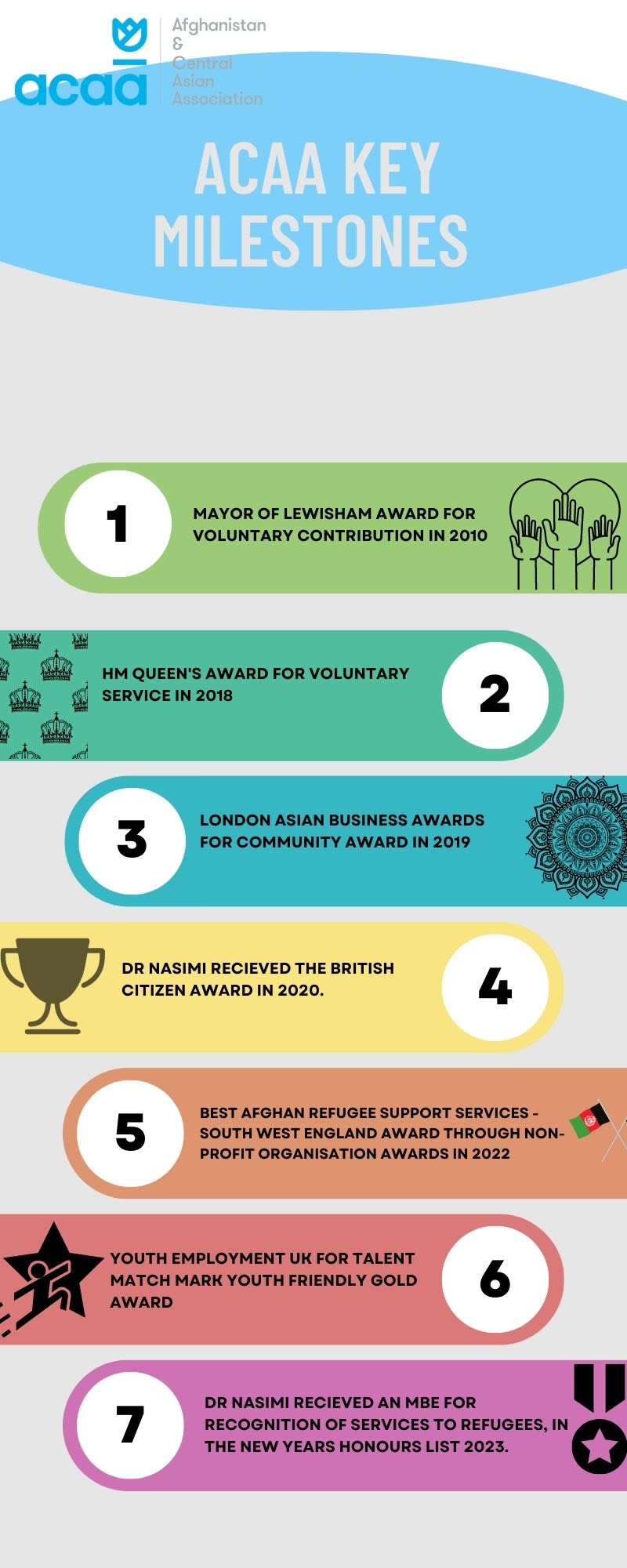
Infographic created by Rabina Khan - source from Afghanistan and Central Asia Association
Infographic created by Rabina Khan - source from Afghanistan and Central Asia Association
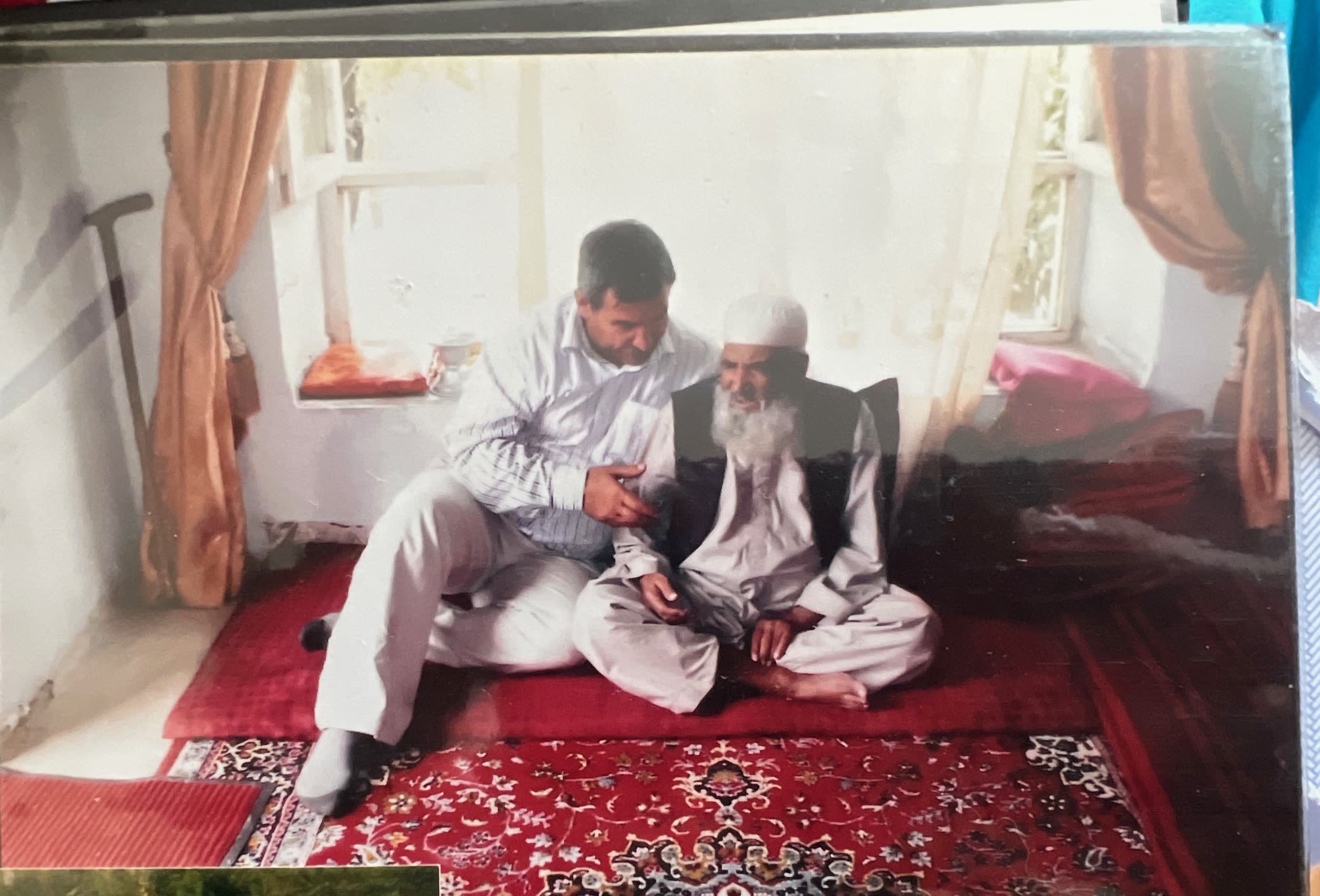
Video credit: Rabina Khan - Sheekeba Nasimi, ACAA's Legal & Development Coordinator, explains about the services the charity offers to support refugees trying to settle in the UK
Video credit: Rabina Khan - Sheekeba Nasimi, ACAA's Legal & Development Coordinator, explains about the services the charity offers to support refugees trying to settle in the UK
Refugee Voices
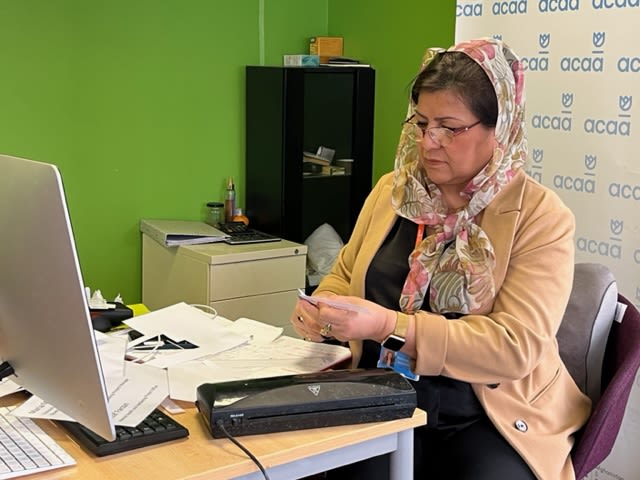
Photo credit: Rabina Khan - Mahboba Nasimi has supported her husband Dr Nasimi from the start of the charity, as a volunteer.
Photo credit: Rabina Khan - Mahboba Nasimi has supported her husband Dr Nasimi from the start of the charity, as a volunteer.
"As parents of three daughters we know first-hand how vital it is to empower girls and women with the right to an education - it is the key to a healthy society and nation. That's why at ACAA we have such a focus on providing key services for girls and women."- Mahboba Nasimi
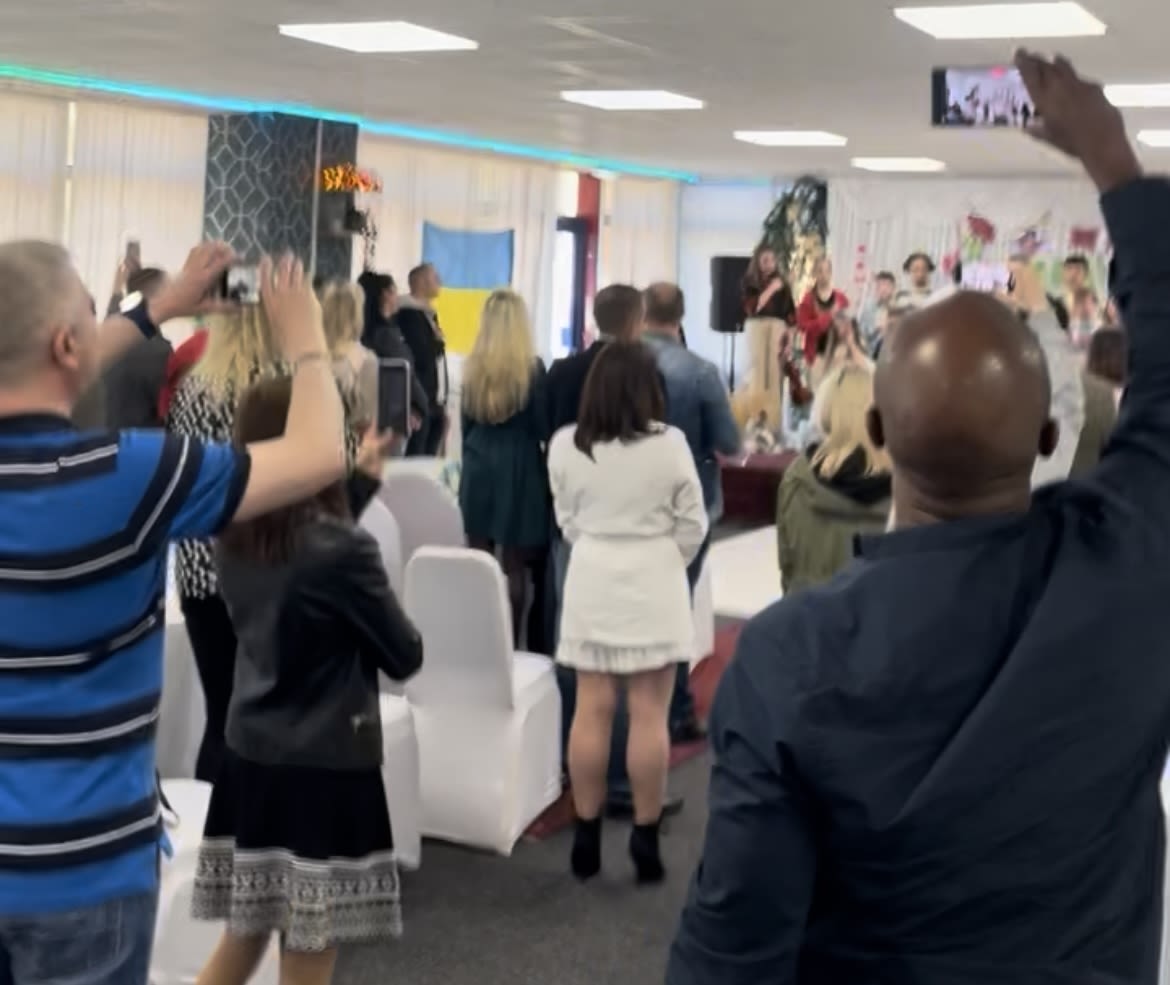
Photo credit: Sheekeba Nasimi - ACAA supporting Ukraine refugees to celebrate their cultural heritage
Photo credit: Sheekeba Nasimi - ACAA supporting Ukraine refugees to celebrate their cultural heritage
"We found a safe haven at ACAA, we are settling down with the support of the Ukrainian Resettlement Project - it is helping me and my family through this very anxious time." - Ukrainian Refugee
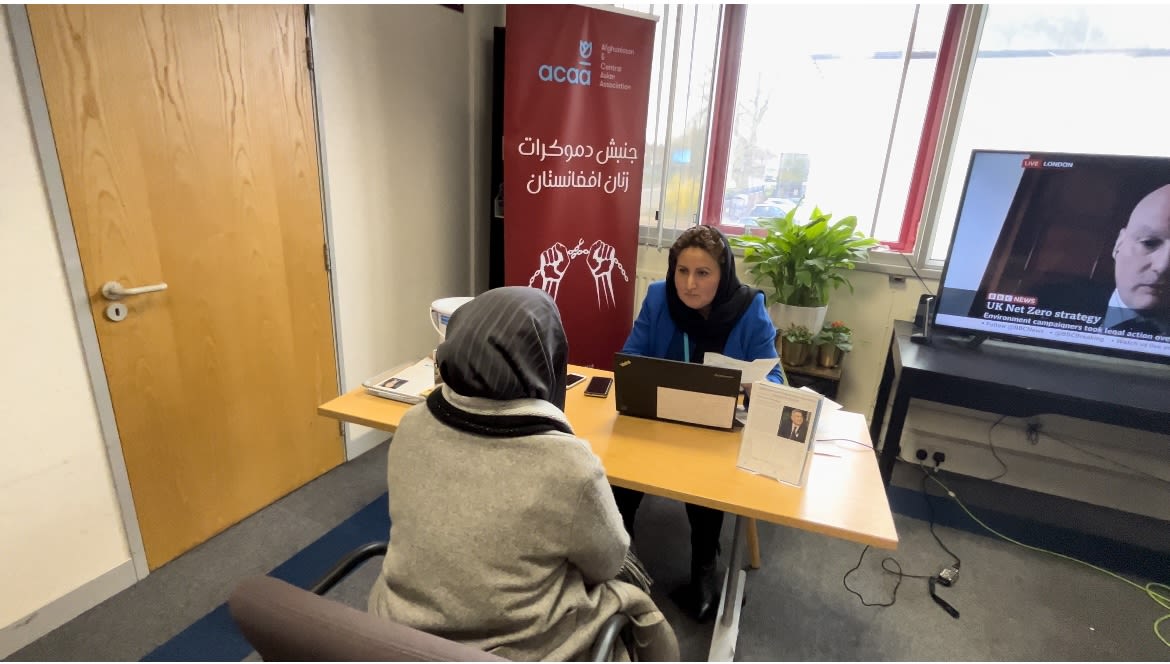
Photo credit: Rabina Khan - ACAA advocacy services supporting refugee women.
Photo credit: Rabina Khan - ACAA advocacy services supporting refugee women.
"I wanted to thank the Afghanistan Association's Manager and Mentor, Justine. She had a big effect on me and my daughter. Words can't describe her kindness and support for my family." - Afghan Refugee
English Classes for integration
The Afghanistan and Central Association provides free English classes, both in-person and online, for refugees and asylum seekers - a life skill Dr Nasimi, believes that helps refugees to better integrate into British society.
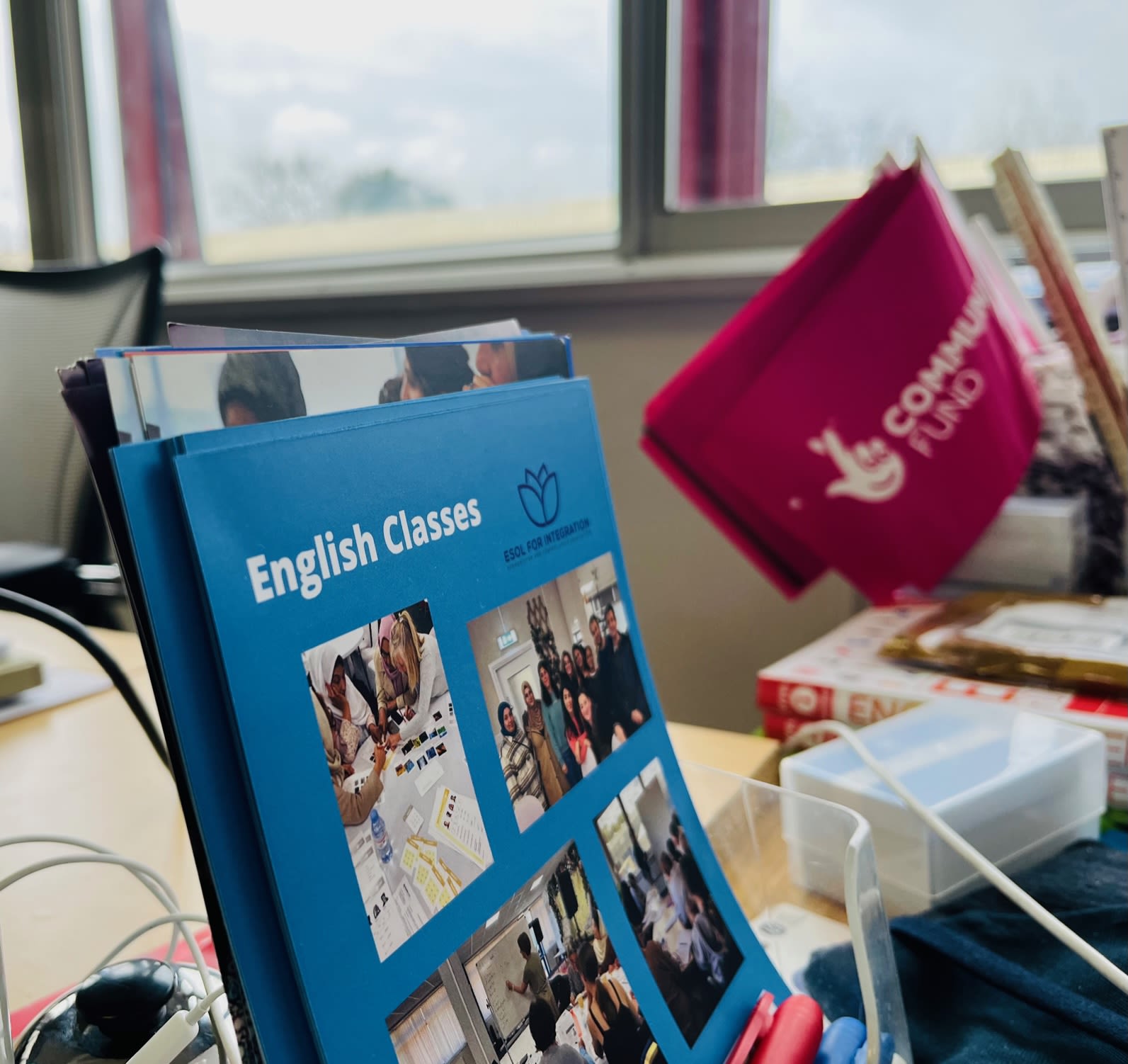
Photo credit: Rabina Khan
Photo credit: Rabina Khan
The Afghanistan and Central Association provides free English classes, both in-person and online, for refugees and asylum seekers looking to better integrate into British society. Commonly know as English for Speakers of Another Language, for integration it currently has 319 students enrolled, 71.47% of whom are women. Classes cater for 5 to 8 students to create safe space for them to interact and develop confidence.
Students come from 35 countries, with one third of the students from Afghanistan and second from Iran but also range from El Salvador to Ukraine. ACAA aims to ensure the classes are available to asylum seekers and refugees of all backgrounds - the majority of students attending the in-person classes are usually those who have recently arrived in the UK.
ACAA also delivers The Ukrainian Integration Support project in "solidarity of standing up for Ukraine"
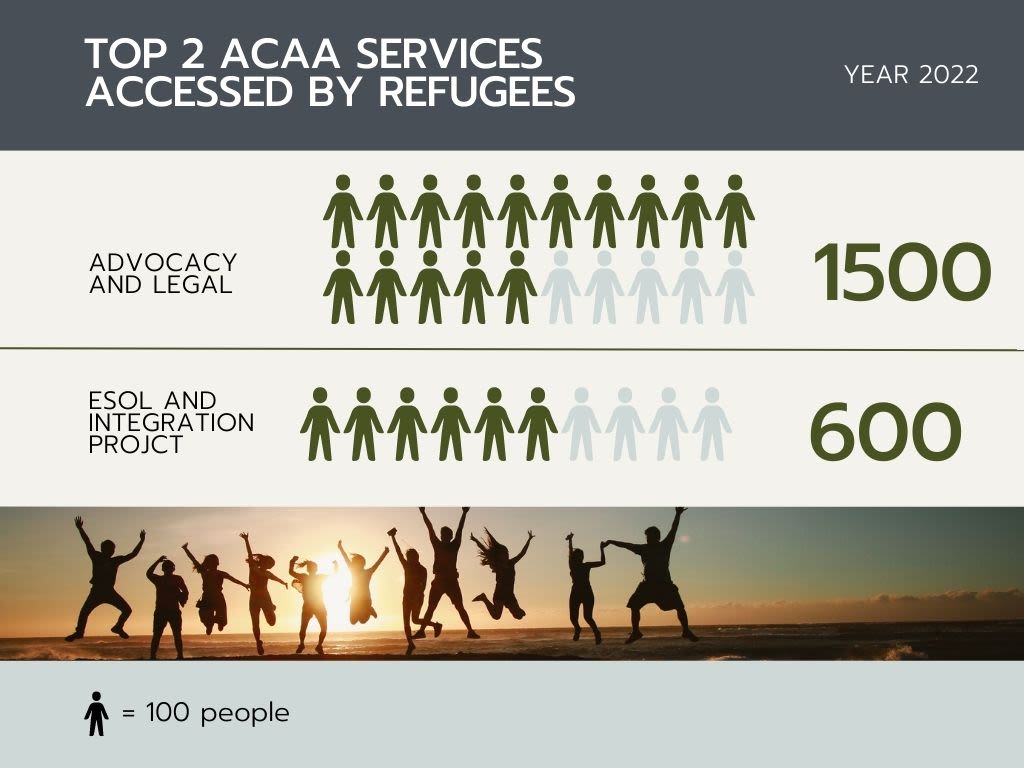
Infographic created by Rabina Khan - source from Afghanistan and Central Asia Association
Infographic created by Rabina Khan - source from Afghanistan and Central Asia Association
Video credit Rabina Khan - Justine Seligson, Integration Manager at Afghanistan and Central Asian Association, explains the impact of learning English for integration
Video credit Rabina Khan - Justine Seligson, Integration Manager at Afghanistan and Central Asian Association, explains the impact of learning English for integration
The Girls Football Club
Influenced by his wife and three "strong and feisty" daughters Dr Nasimi's commitment to empowering girls extended to providing a girls and young women's football club. Today the charity runs a football club for girls and young women refugees.
Source from ACAA YouTube Channel
From humble beginnings as a small charity, 23 years on, the Afghanistan and Central Asia Association, is a busy charity operating not just in the United Kingdom, but delivering life-line services in Kabul through its advice centre. In the 2023 New Years Honours, Dr Nasimi, was awarded an MBE for his services in the charity sector and in recognition of his work to empower refugees.
Video credit: Rabina Khan - Dr Nasimi, Director of ACAA on receiving his MBE in the 2023 New Year's Honours
Video credit: Rabina Khan - Dr Nasimi, Director of ACAA on receiving his MBE in the 2023 New Year's Honours
Dr Nasimi, is now a leading spokesperson on the subject of refugees, asylum seekers and Afghanistan - he regularly appears and is quoted on national and international media. "As a former Afghan refugee who arrived in the UK in 1999," he said, "I feel very lucky to be part of this beautiful democracy. The UK is the most welcoming place in the world, I'm proud to call it home."
Dr Nasimi on Sky News
A lifeline for refugees
